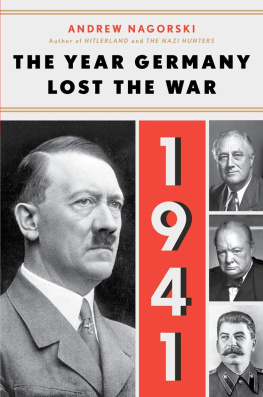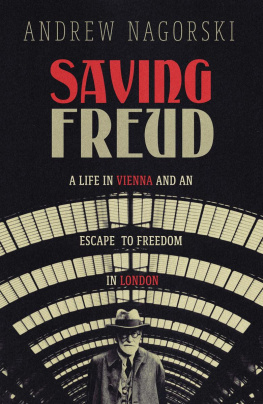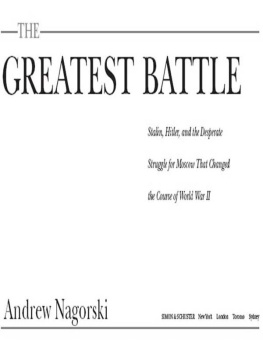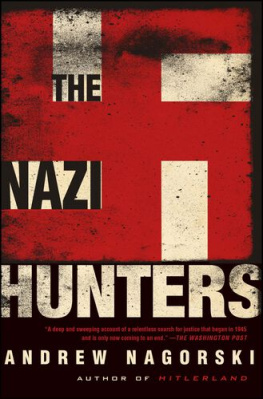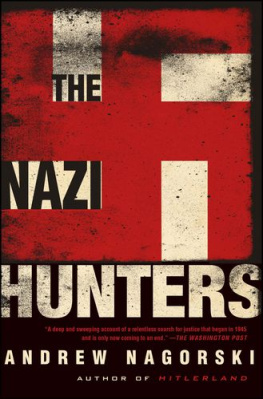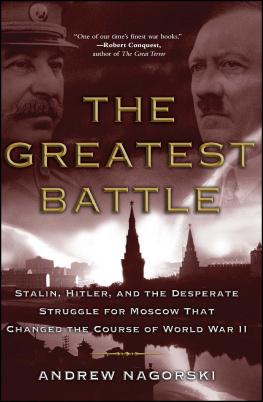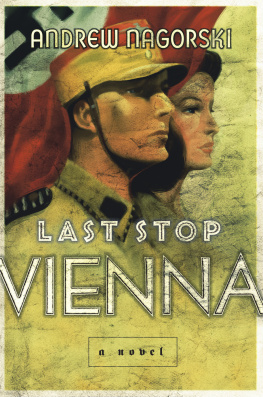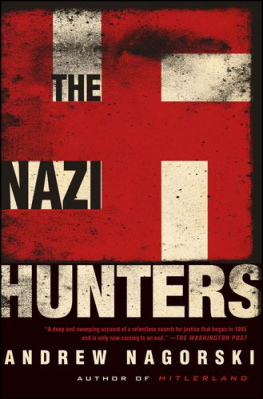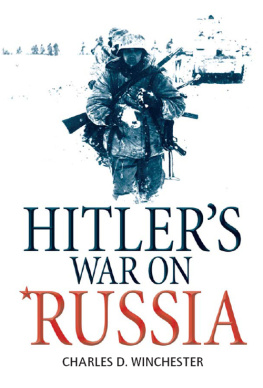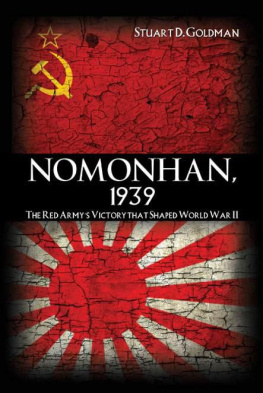Thank you for downloading this Simon & Schuster ebook. Get a FREE ebook when you join our mailing list. Plus, get updates on new releases, deals, recommended reads, and more from Simon & Schuster. Click below to sign up and see terms and conditions. CLICK HERE TO SIGN UP Already a subscriber? Provide your email again so we can register this ebook and send you more of what you like to read. You will continue to receive exclusive offers in your inbox.

CONTENTS
As always, for Krysia
CAST OF CHARACTERS
Germany
Adolf Hitler (18891945): Nazi Party leader who became chancellor in 1933 and took the additional grandiose title of Fhrer in 1934 following the death of President Paul von Hindenburg.
Joachim von Ribbentrop (18931946): foreign minister who signed the German-Soviet Nonaggression Pact in 1939, which set the stage for Germanys invasion of Poland that marked the start of World War II. He was the first of the major Nazi war criminals to be hanged in Nuremberg.
Albert Speer (19051981): Hitlers chief architect and, later, from 1942 to 1945, his minister of armaments and war production. Tried and convicted in Nuremberg for war crimes and crimes against humanity, he served a twenty-year sentence in West Berlins Spandau Prison.
Franz Halder (18841972): chief of the German armys general staff from 1938 to 1942. Although he worked closely with Hitler during that critical period, he was later implicated in the July 20, 1944, plot to assassinate Hitler and sent to the Dachau concentration camp. After the war, he testified in Nuremberg against the Nazi leaders on trial there. His war diaries have proved invaluable to historians of the Third Reich.
Heinz Guderian (18881954): the commander of panzer units and proponent of the blitzkrieg (lightning war) tactics that were employed so effectively in the initial German conquests of World War II. An early favorite of Hitlers, Guderian repeatedly clashed with the German leader over his handling of the invasion of the Soviet Union. In December 1941 Hitler dismissed him, but Guderian was recalled to wartime duty in 1943.
Georg Thomas (18901946): the German army general who was the chief economist of the Wehrmacht (the armed forces) and a longtime specialist in procurement. Thomas tried to warn Hitler of the dangers of launching a wider war but later helped design the Nazis Hunger Plan for the Soviet Union. Implicated in the July 20, 1944, plot to assassinate Hitler, he was arrested and held prisoner until the end of the war. He died in American captivity in 1946.
Soviet Union
Joseph Stalin (18781953): general secretary of the Communist Party and, as of May 1941, premier of the Soviet Union.
Vyacheslav Molotov (18901986): close associate of Stalin who held a variety of top Communist Party and state posts. As foreign minister, he was most famous for signing the German-Soviet Nonaggression Pact, also known as the Molotov-Ribbentrop Pact. Expelled from the Communist Party in 1962 as a result of de-Stalinization, he was reinstated in the Party in 1984, two years before his death.
Georgy Zhukov (18961974): chief of the general staff and Stalins top general who led the defense of Moscow and other major campaigns all the way up to the drive on Berlin in 1945.
Anastas Mikoyan (18951978): Politburo member and member of the State Defense Committee, among other assignments. Despite his long association with Stalin, the Armenian old Bolshevik outlasted him biologically and politically, participating in Nikita Khrushchevs de-Stalinization campaign.
Ivan Maisky (18841975): Soviet ambassador to the United Kingdom from 1932 to 1943. In his extensive diaries, he chronicled his frequent interactions with British officials from Winston Churchill on down. He later participated in the Yalta and Potsdam Conferences. In 1952, shortly before Stalins death, he was arrested and accused of espionage and participation in a Zionist conspiracy. He was released in 1955.
Britain
Winston Churchill (18741965): prime minister from 1940 to 1945, and from 1951 to 1955.
Anthony Eden (18971977): foreign secretary from 1935 to 1938, 1940 to 1945, and 1951 to 1955. Succeeded Churchill as prime minister from 1955 to 1957.
Lord Beaverbrook, William Maxwell Aitken (18791964): Canadian-British newspaper publisher who was an early supporter of appeasement but then held a variety of positions in Churchills War Cabinet: minister of aircraft production, minister of supply, and minister of war production. Along with Averell Harriman, he led the Anglo-American delegation to meetings with Stalin in Moscow in 1941.
Lord Ismay, General Hastings Ismay (18871965): Churchills chief military adviser, who supported providing aid to the Soviet Union but was wary of Stalins political and territorial ambitions. In 1952 he became the first secretary general of the North Atlantic Treaty Organization (NATO).
Harold Nicolson (18861968): Conservative member of Parliament (MP) and staunch supporter of Churchill, who also worked in the Information Ministry. His diaries and letters provide revealing testimony about the atmosphere in wartime London.
John Colville (19151987): Foreign Office staffer who was assigned to 10 Downing Street at age twenty-four in 1939. When Churchill took office in 1940, Jock Colville worked closely with him on a daily basis, serving as his principal private secretary. He, too, kept detailed diaries.
United States
Franklin Delano Roosevelt (18821945): president from 1933 to his death early in his fourth term in 1945.
Harry Hopkins (18901946): Roosevelts close adviser who embarked on special missions to London and Moscow. As the presidents personal representative to Britain, he cultivated strong personal ties with Churchill. He oversaw the Lend-Lease program and advocated unconditional aid to Stalins Soviet Union.
W. Averell Harriman (18911986): dispatched by Roosevelt to Britain to handle all Lend-Lease matters there, since Hopkins was only an occasional visitor. Along with Lord Beaverbrook, he led the Anglo-American delegation to Moscow, where the two men held extensive talks with Stalin.
John Gilbert Winant (18891947): former Republican governor of New Hampshire and Roosevelts pick as ambassador to Britain, succeeding the defeatist Joseph Kennedy. He also developed an excellent rapport with Churchill.
Raymond E. Lee (18861958): the popular, well-connected military attach in the US embassy in London. A staunch supporter of US aid for Britain, the army general played an important behind-the-scenes role in preparing for Americas entry into the war.
Charles Lindbergh (19021974): famed aviator who became the most prominent spokesman of the America First isolationist movement.
INTRODUCTION
O n June 28, 1940, shortly after the German invasion of France and that countrys capitulation, Adolf Hitler visited Paris for the first and only time in his life. During the mere three hours he spent in the French capital, there was no victory parade. The ostensible reason was the fear of British air raids. But the German leader later offered another explanation: We arent at the end yet.
At that point, Hitlers Germany had reached its apogee. It had already dismembered Czechoslovakia, annexed Austria, and conquered Poland, Denmark, Norway, the Netherlands, Belgium, and Luxembourg, culminating in its especially satisfying humiliation of France. The German military machine looked to be unstoppable.
Nonetheless, Hitler understood that his messianic dream of a new Germanic empire was only partially fulfilled. Three leaders stood in his way. Britains Winston Churchill, who replaced Neville Chamberlain as prime minister at the moment that France fell, was proclaiming Britains defiance and determination to fight back. The Soviet Unions Joseph Stalin remained a de facto but uncertain ally since the signing of the Nazi-Soviet pact less than a year earlier, with neither tyrant completely trusting the other not to strike. And across the Atlantic, President Franklin D. Roosevelt was promising to keep the United States out of the conflict, but there was no doubt about his sympathy for an increasingly isolated Britain.
Next page
